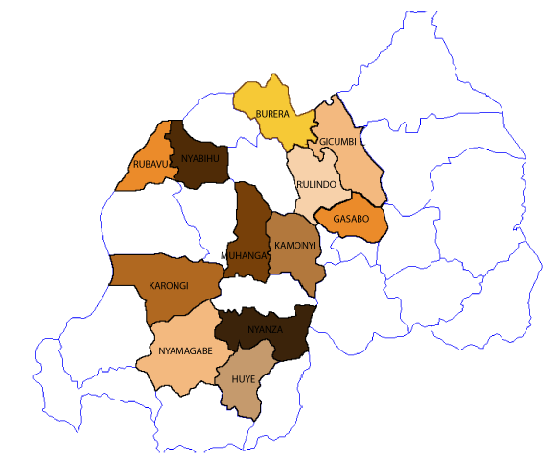OUR WORK
HOME / OUR WORK
CBS overview
Community-based sociotherapy/ Mvura nkuvure is an approach that uses the group as a therapeutic medium in the establishment of trust, the creation of an open environment for discussion and the formation of peer-support structures. Mvura nkuvure groups facilitate community members to identify, acknowledge, share, and manage together their everyday psychosocial problems related to experiences of violence and daily distress. The strength of Sociotherapy/ Mvura nkuvure lies in the connection with grassroots communities and in acknowledging their role as agents in making healing and peace-building a sustainable process.
Areas of interventions
- Reconciliation and restorative justice
- Psychosocial wellbeing and mental health
- Addressing intergenerational legacies of genocide
- Grassroots advocacy and civic engagement
- Socio-economic development and gender equality
- Research
CBS objectives
The overall objective of Community-based Sociotherapy intervention is to contribute to restorative justice, social change and psychosocial recovery, in post-conflict settings, for the promotion of sustainable peace across the generations.
Specifically, the Sociotherapy approach as introduced in Rwanda aims at:
- Fostering feelings of dignity, safety and trust for all people who are affected by war, genocide and their aftermath;
- Reducing mental and social distress;
- Capitalizing on the vital human capabilities that enable individuals and the entire community to break through the obstacles that prevent living together in peace and facilitate processes of interpersonal and inter-group reconciliation;
- Eliminating disturbed and delayed socio-economic development and
- Breaking through the intergenerational transmission of trauma and violence.
Rationale of the program
- Genocide against the Tutsi destroyed communal bounds and shattered trust in the aftermath of genocide;
- Large number of individuals who went through traumatic experiences and lost a ‘feeling of being human’;
- Social isolation and a lack of engagement in decision making processes.
- Rwanda was dealing with many post-gacaca issues, our objective became consolidating its successes, but also addressing the left-overs: trauma, long-term reconciliation, reparation, etc.
Target group
The people who are targeted to facilitate and participate in sociotherapy/ Mvura nkuvure are a representation of the community, including:
- Genocide survivors
- Ex-prisoners, prisoners and neighbors
- Partners with husbands/wives in prison
- Descendants of genocide survivors and perpetrators
- Single mothers
- Families in conflict
- Returnees from exile
- Refugees
Our community

